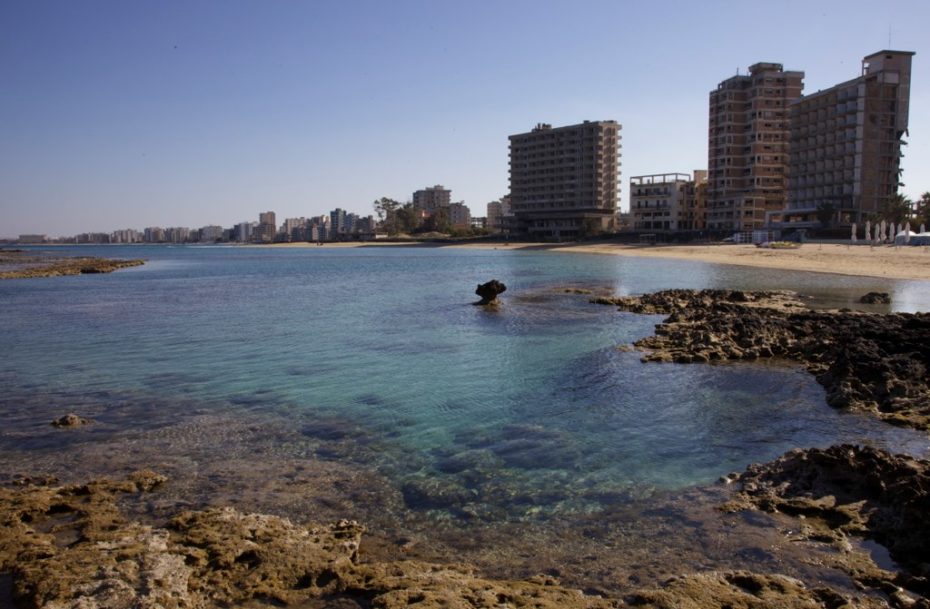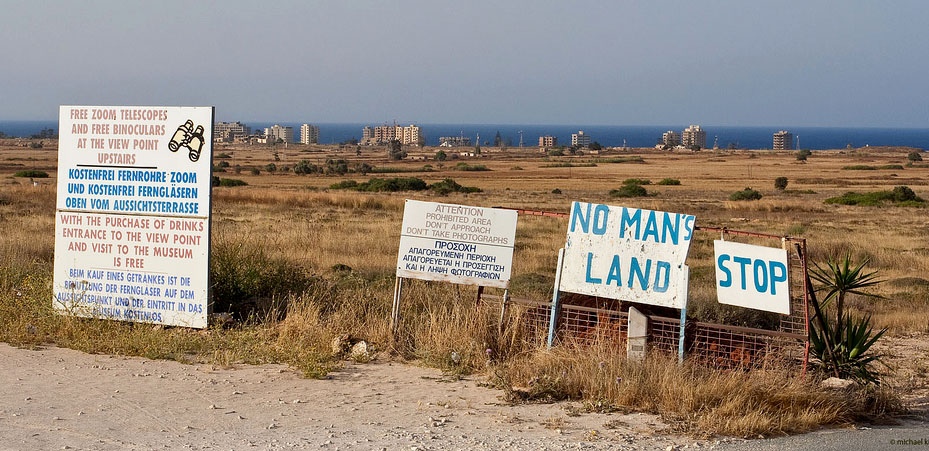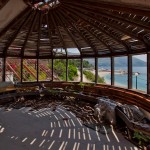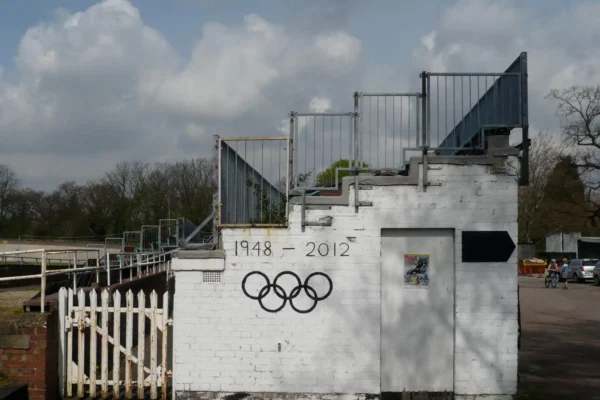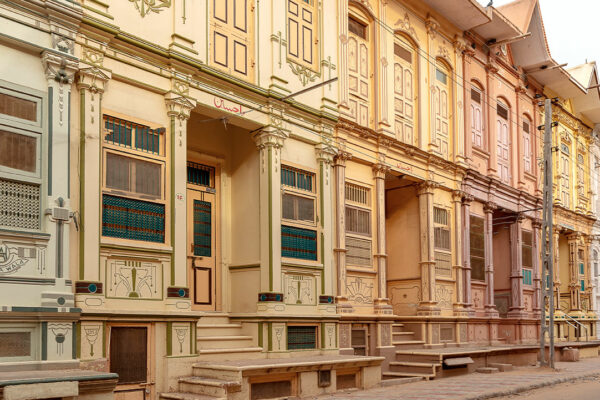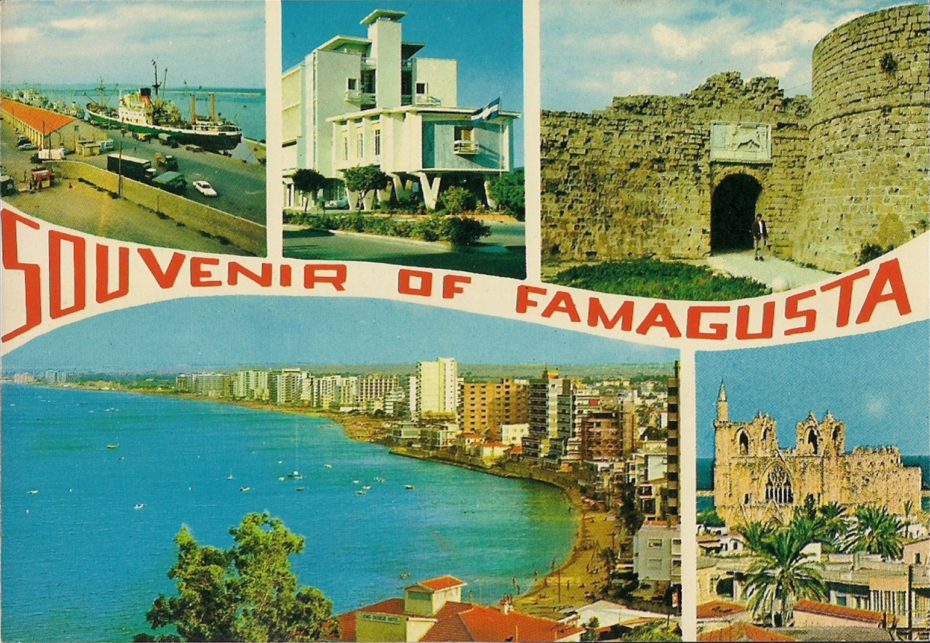
Imagine a millionaire’s resort; one to rival St. Tropez, Italy’s Portofino, or Miami’s South Beach – abandoned overnight. Imagine the luxury hotels suddenly emptied of their guests and left to slowly decay, the boutiques, bars and nightclubs reclaimed by nature, sunbathers replaced by sea turtles nesting on the deserted beaches and the once vibrant holiday spirit silenced; nothing more than a whisper in the wind. Perhaps in 2020, such scenes are less difficult to imagine, but this is not the story of a temporary travel ban to control the outbreak of a virus. This is the story of a near 50 year lockdown of the Cypriot seaside city known as Varosha, once regarded as one of the world’s most popular tourist destinations during the early 1970s. Surrounded by turquoise blue waters and white sandy beaches on the western coast of the island of Cyprus in the Mediterranean sea, it was enjoyed by millionaires and movie stars such as Brigitte Bardot and Elizabeth Taylor, who were regular guests at the grand high rise hotels. Varosha was home to over 39,000 residents but today the holiday town is entirely fenced off, forbidding anyone from entering for nearly half a century. Until now…
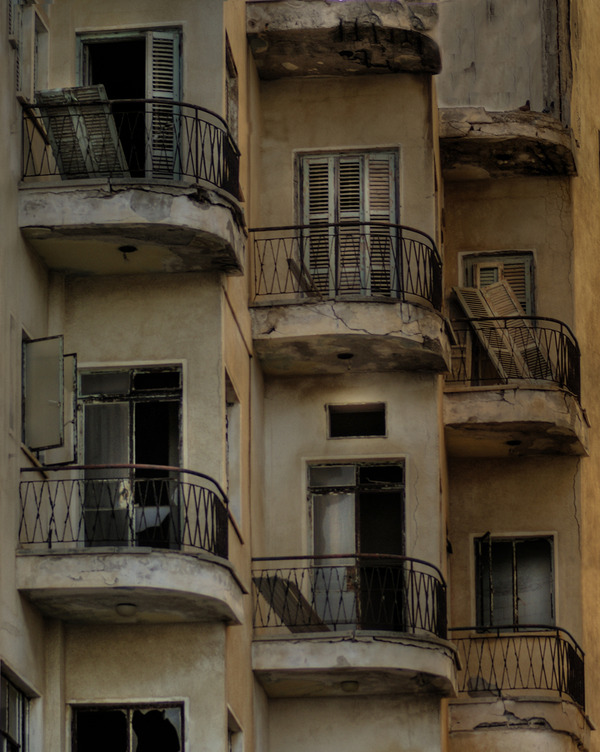
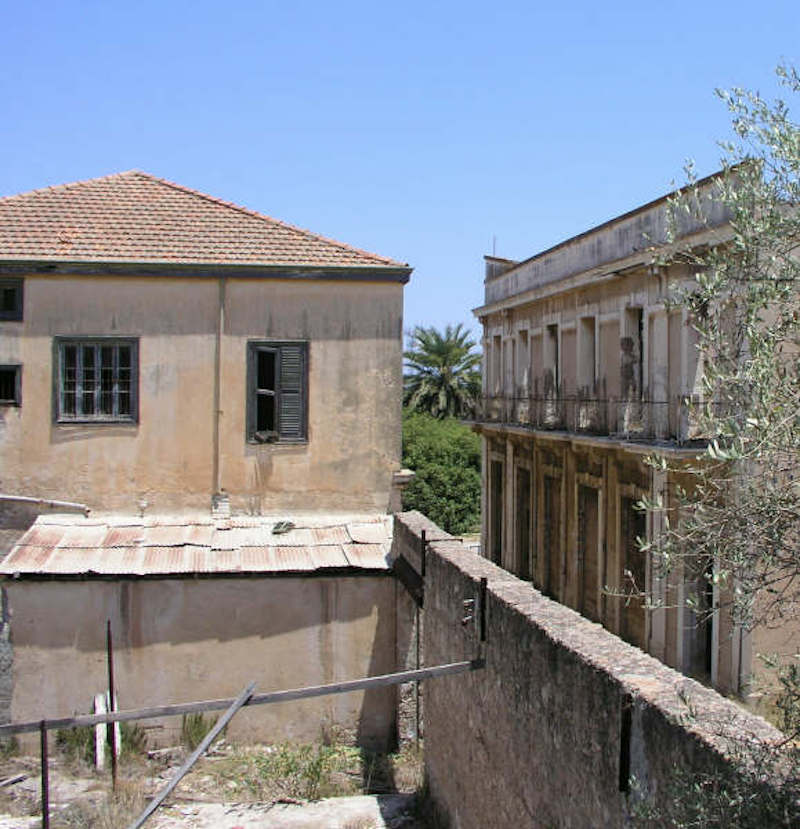
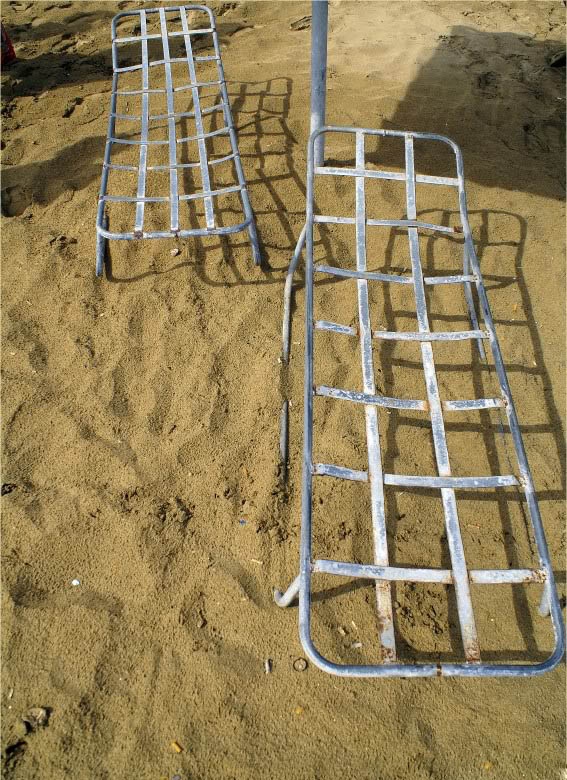
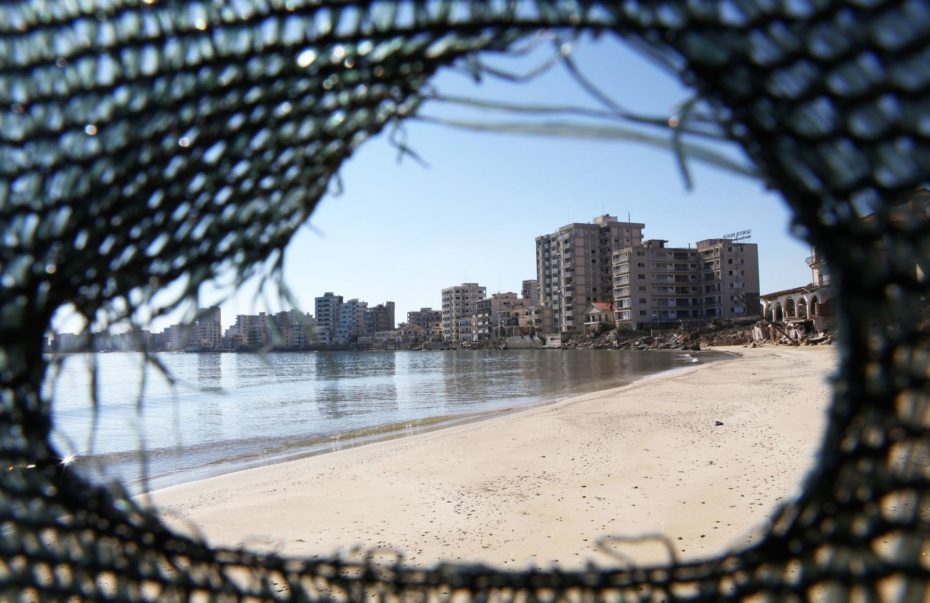
In the summer of 1974, without warning and in the middle of the highest season for tourists, Varosha fell victim to the ongoing war between the Greeks and the Turks. A full-scale Turkish invasion took place with air strikes and ground forces. While the seaside resort was being bombed and buildings toppled, tourists and residents were fleeing their homes and hotel rooms, leaving behind everything, never to return.
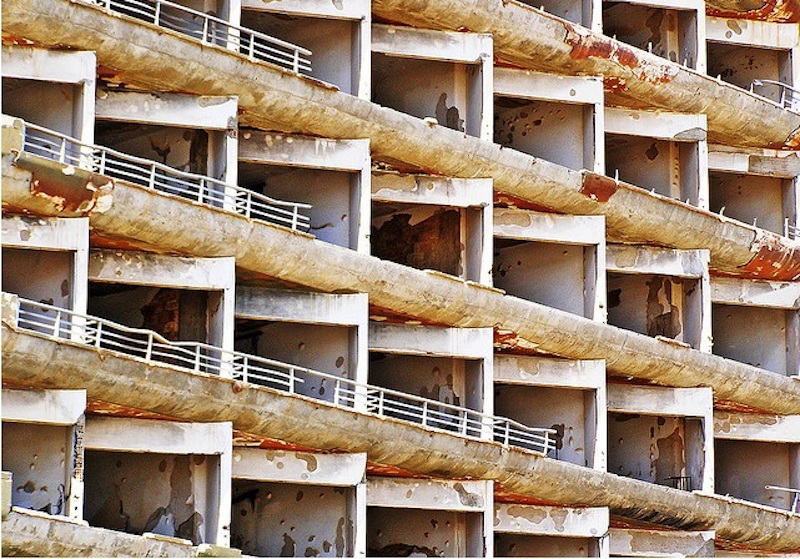
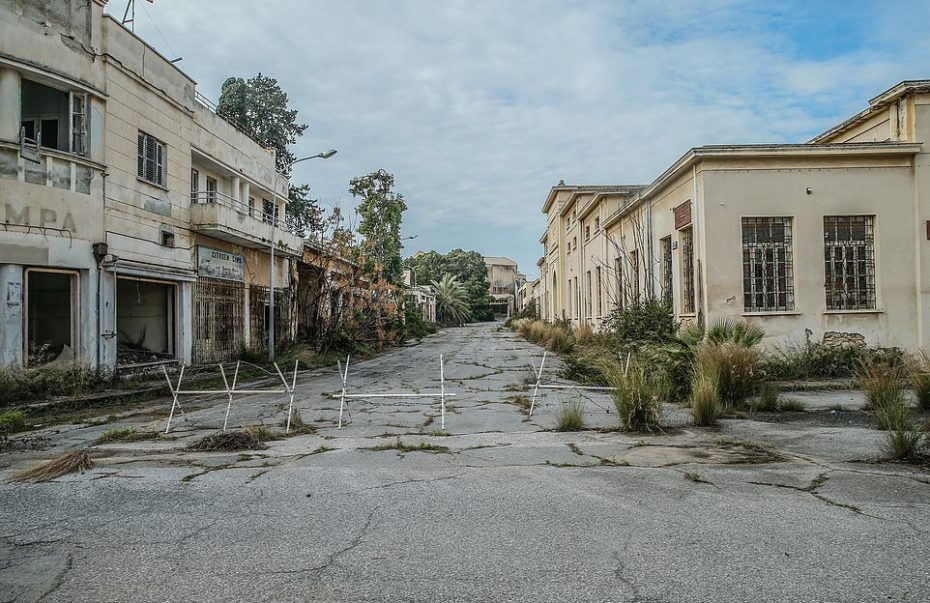
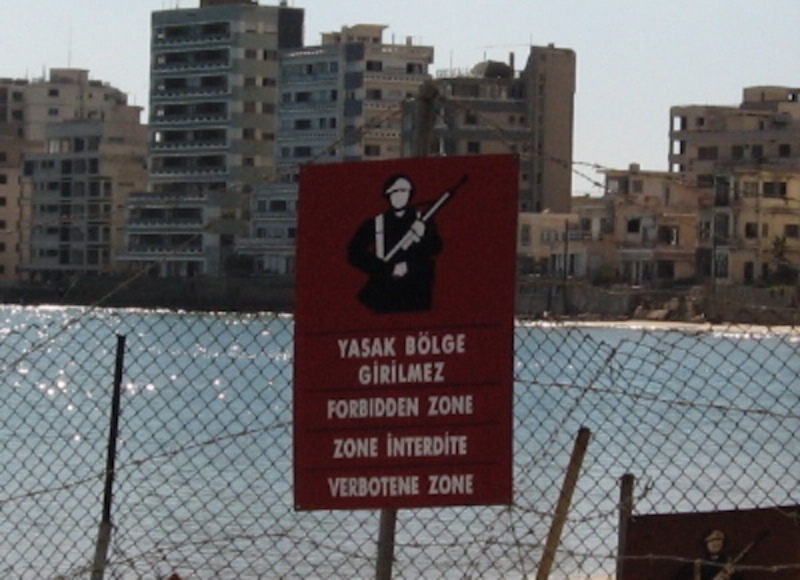
The Turkish military quickly gained control and began to seal off the area with patrolled fences, banning anyone and everyone except Turkish military or UN personnel.
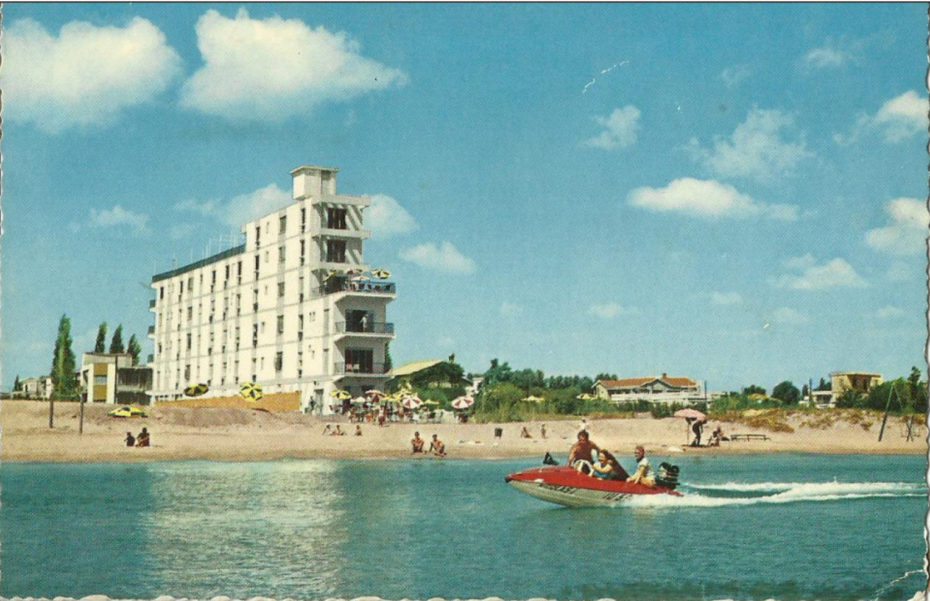
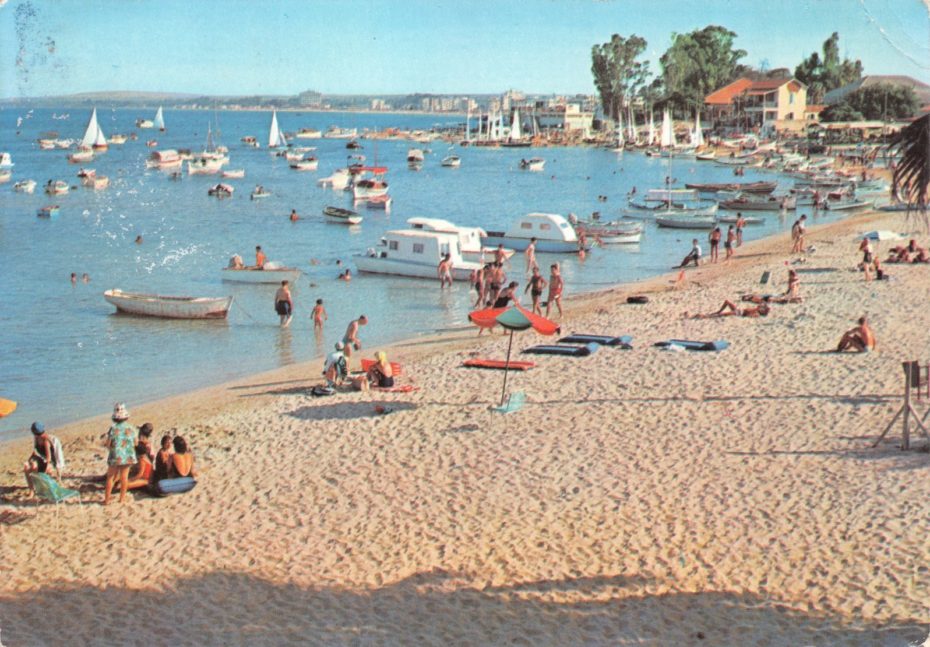
Varosha’s reputation as one of the most idyllic holiday destinations was destroyed overnight. Forty six years later, the sun still shines on the once bustling luxury shopping boulevard and the waves still stroke the sands of the old beach clubs but Varosha remains desolate.
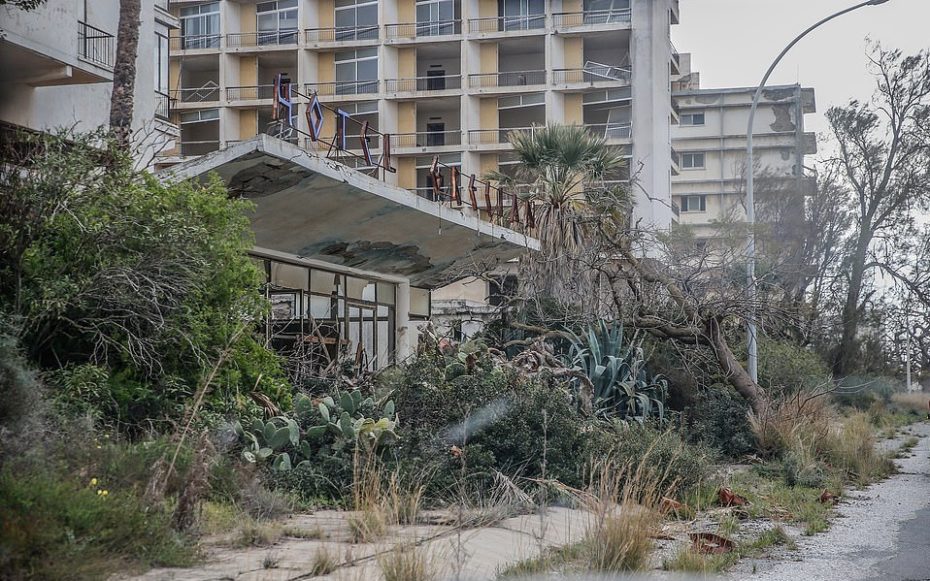
Bursting with nature’s overgrowth, the only humans to walk Varosha’s streets are the occasional Turkish soldiers on routine patrols looking for trespassers. They have been authorized to imprison or even execute anyone they may find. For this reason, photographs of Varosha have been rare to come by. The photographs of those who have ventured over the fences are unlike most of the derelict photography we often see of abandoned places such as the dark and dismal aftermath of Tchernobyl or poverty-stricken neighbourhoods of Detroit. Varosha’s remains are bathed in sunlight and what is left behind shows a place that was thriving and full of joy when it’s soul was snatched away.
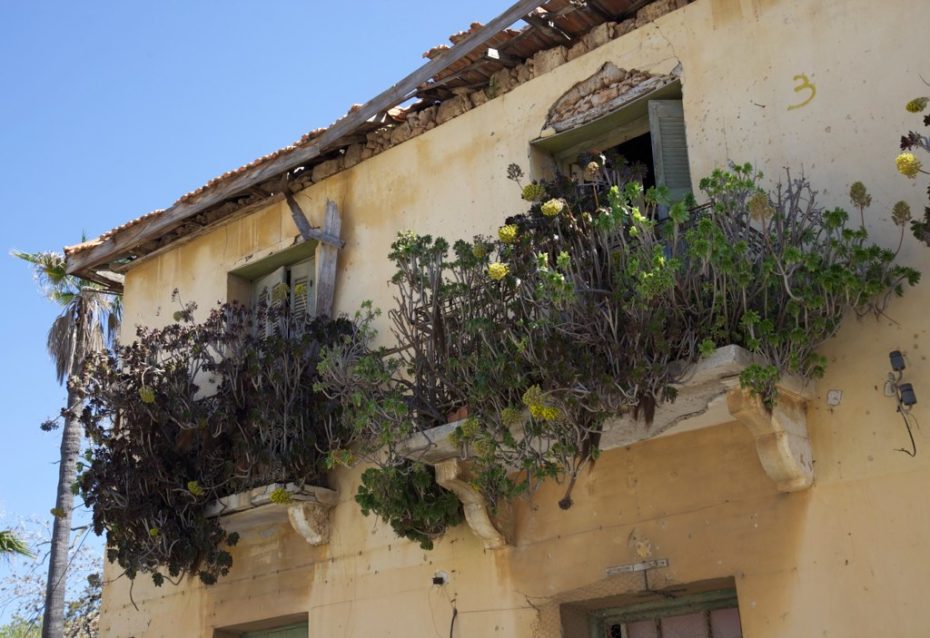
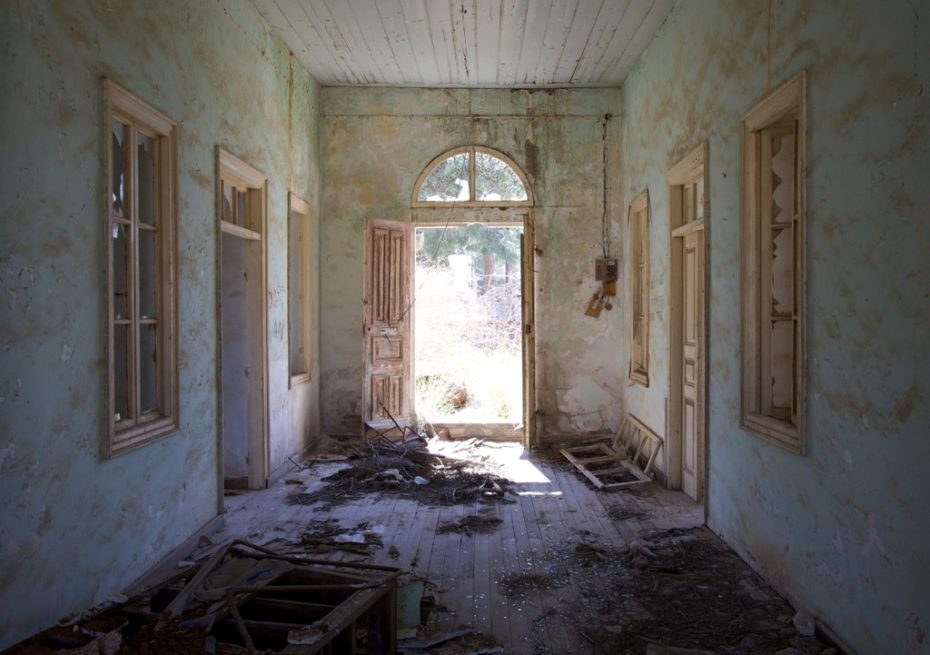
Homes are still filled with residents’ furniture and clothes, tables are still set for dinner. A Swedish journalist who visited the town with the Swedish UN battalion in 1977 said he saw laundry still hanging and light bulbs still burning through windows in buildings.
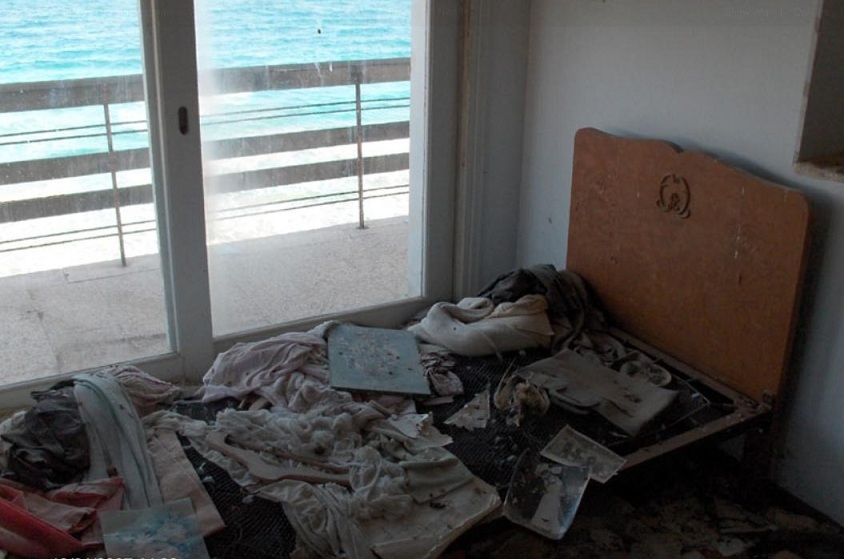
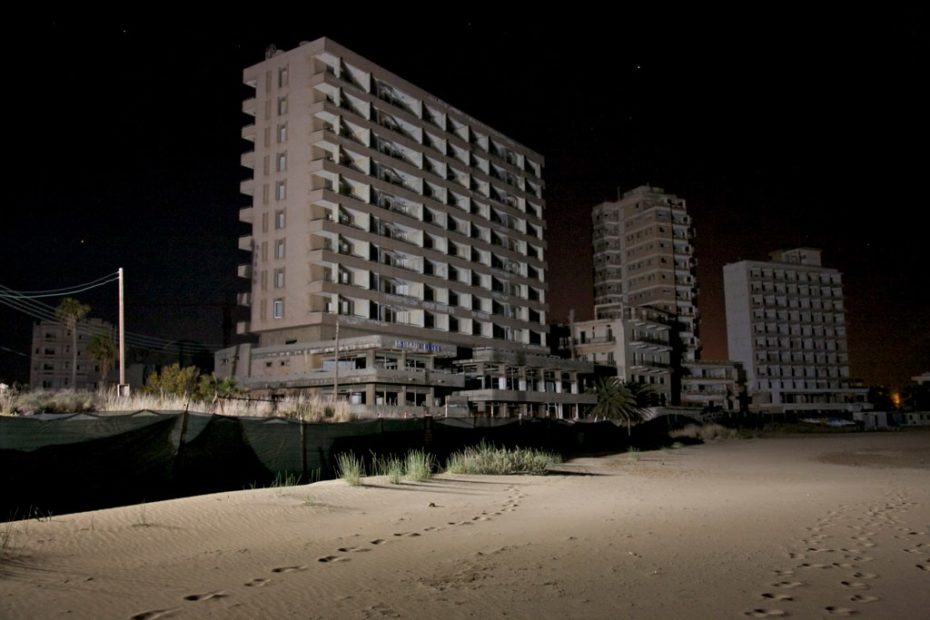
A construction crane still appears in Varosha’s skyline above a new hotel that it never finished building. Car dealerships still house brand new cars straight out of the factory from the year of invasion; like automotive time capsules. The whole town is literally one big sun-drenched time capsule.
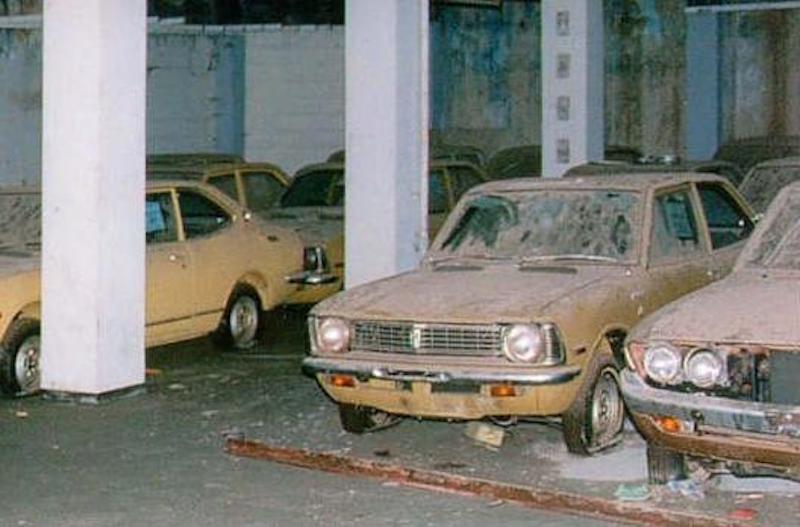
You can’t help but be baffled at how such a place has been allowed to rot for almost 50 years. There is no simple explanation, but I’m going to leave the political history behind the Greek and Turkish conflict (which goes back for centuries) for a rainy day. In a nutshell, Varosha’s neglect is a case of ‘if I can’t have it, then nobody can’. A UN resolution in 1984 ruled that Varosha should only be resettled by the original inhabitants who lived there before the invasion. This prevented Turkey from re-opening the resort but they never gave it back to the Greeks. Why hold on to a ghost town? The Turkish government probably figured it could come in useful one day as a political bargaining tool. It didn’t.
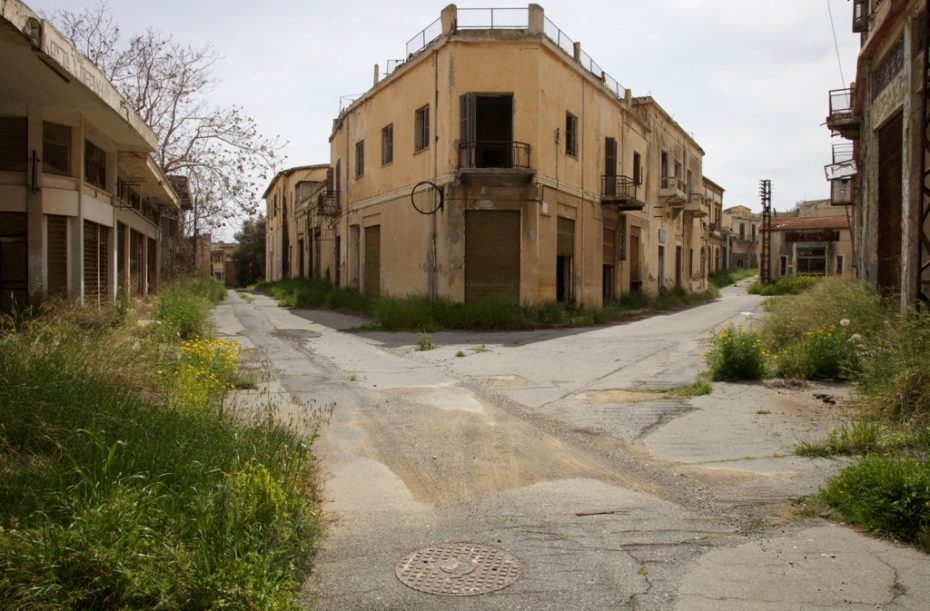
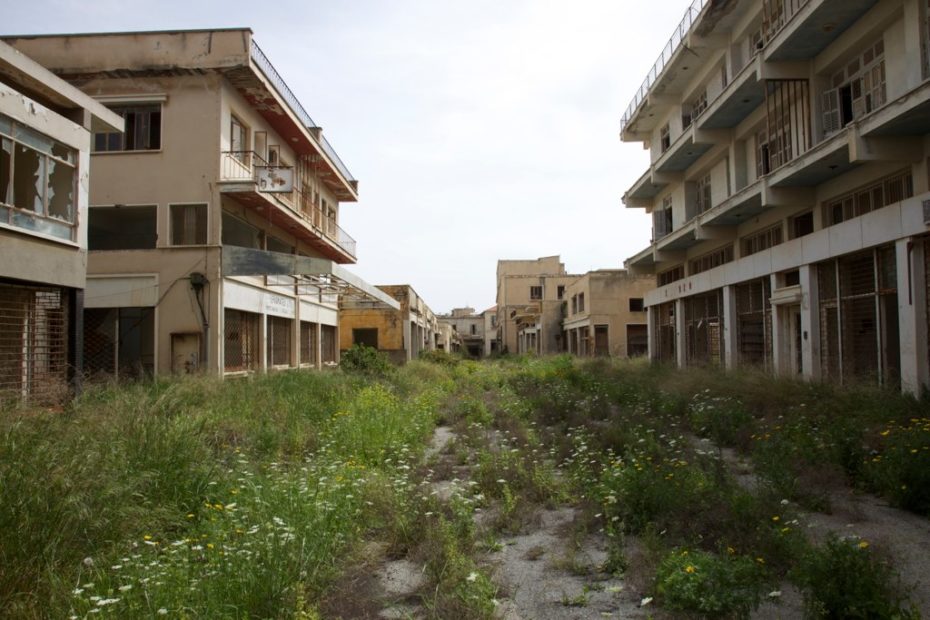
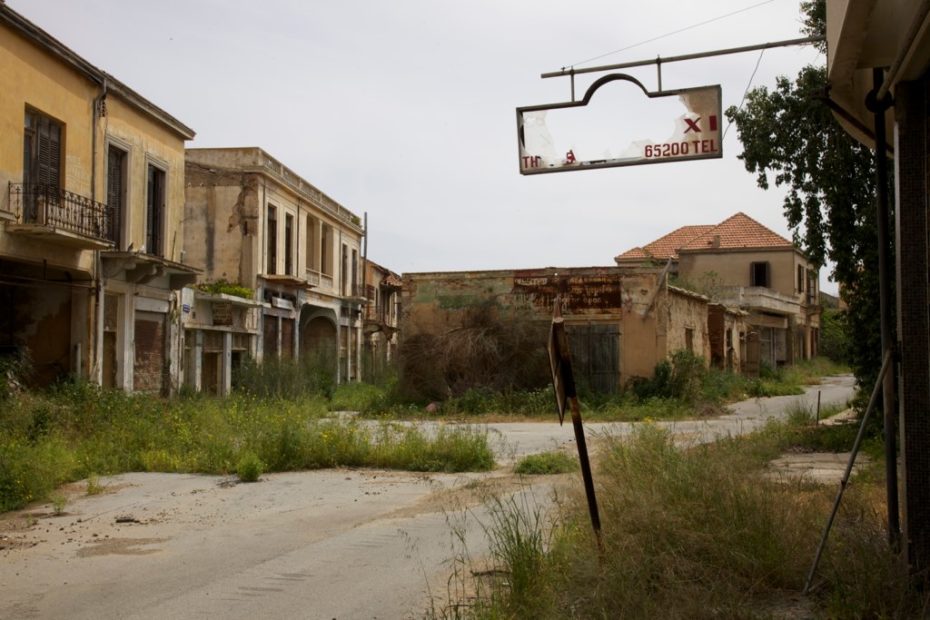
This year, despite no agreement having been reached with the Greeks and amid heightened tension in the Eastern Mediterranean, the Turkish authorities announced its plans to re-open the ghost town currently under their control for settlement. Work on the reopening of the “ghost town” of Varosha will reportedly gain momentum after the coronavirus pandemic is finished.
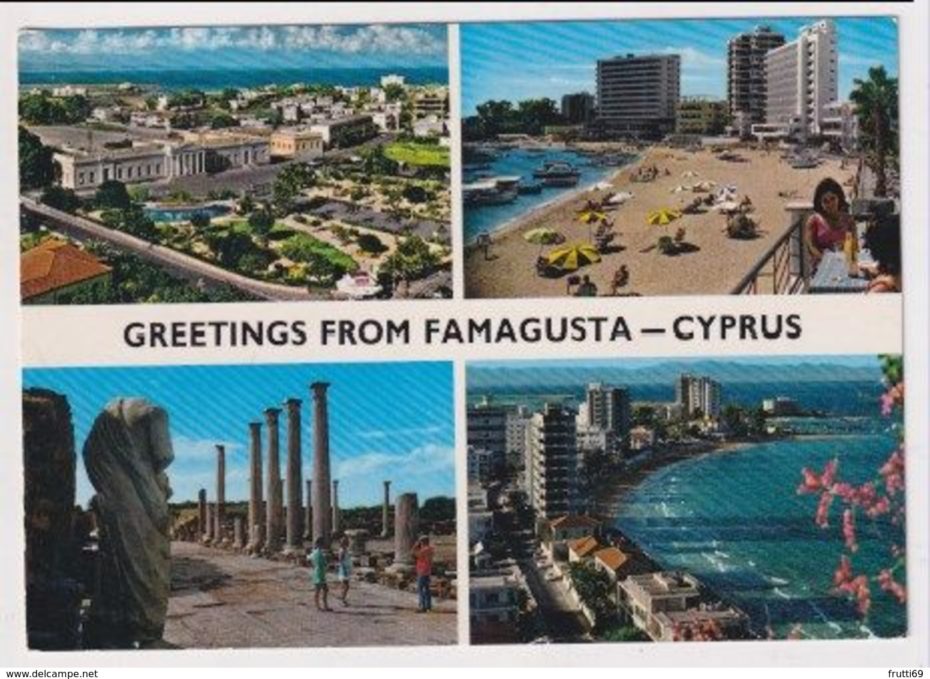
The re-opening is obviously a delicate issue as it involves hundreds of Greek Cypriot properties currently under Turkish control. Not to mention, Varosha is now a big old mess. Nature’s elements have been very busy since 1974 and they are the only true rulers of Varosha today. The buildings have been left to decay for so long that experts say the entire town would have to be demolished in order to rebuild and bring people back– a very costly revival that few will be in any great haste to undertake in the wake of a pandemic followed by an economic crisis. But if you were looking for a holiday resort without the crowds to “enjoy” isolation, you might be on the right path…
